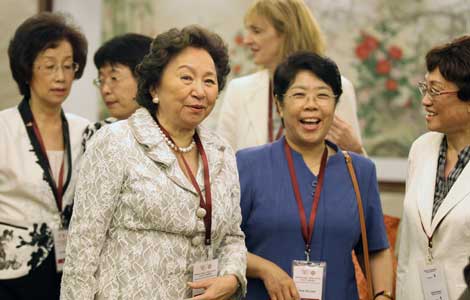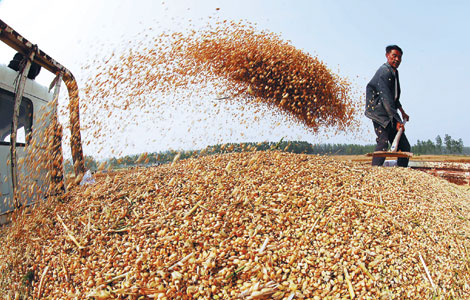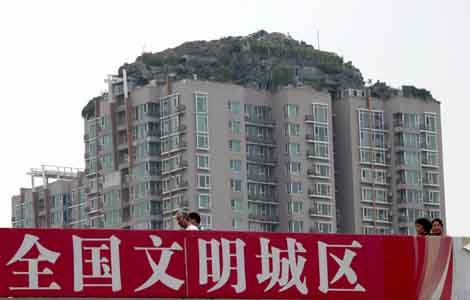Economists cautious about China's recovery
Updated: 2013-08-13 08:55
(Xinhua)
|
||||||||
BEIJING -- While China's recent economic data cheered up the country's entity markets, many economists remain cautious about whether the economy's rebound will be carried through the rest of the year.
Last week saw the release of a string of key economic indicators, pointing to some improvement in the world's second-largest economy, if not for all its sectors.
Chinese stock markets responded with a three-day winning streak last week despite the mixed signals the data. And the shares further rallied on Monday with the benchmark Shanghai Composite Index climbing 2.39 percent and the Shenzhen Component Index surging 2.59 percent.
"Most figures released lately indicated that the economy reversed a downward trend in July. But I will call it a rebound, not a trend," said Lian Ping, chief economist with the Bank of Communications.
Official figures delivered good news in the growth of the country's industrial production, foreign trade and lending in July, which eased market blues about a persistent slowdown.
China's economic expansion dropped to 7.5 percent in the second quarter of the year and 7.7 percent in the first quarter, which choked a rebound to 7.9 percent in the final quarter of 2012.
"Looking into the economy, possibilities still exist for it to continue moving downward in the last two quarters of this year, but we may see improvement and stabilization in terms of quarter-to-quarter changes," Lian said.
He believes that the economy still faces downside pressures because the impetus to drive the country's endogenous growth remains insufficient, which was reflected by the lackluster manufacturing sector.
Sharing this view, Wang Jun, an economist with the China Center for International Economic Exchanges, said that the country's real economy may not be out of the woods yet.
Data released last week showed that despite a relief in inflation levels, the producer price index, which gauges prices of goods when leaving factory gates, was stuck in negative territory for a 17th consecutive month in July.
"It showed that market demand remains weak and more efforts should be made to deal with over-capacity," Wang said, adding that more time is needed to establish whether the positive signs will consolidate to form a trend.
In addition, Lian said that it remained questionable whether the rebound in July's trade, boosted largely by overseas Christmas consumption, will continue in subsequent months.
"After all, the economy is losing its advantages in cheap-labor products to other more competitive developing countries. Its market territory is shrinking rather than expanding," he said.
Both exports and imports recorded unexpectedly high growth rates after sharp declines in June. Customs data showed that China's foreign trade grew 7.8 percent in July from a year earlier, compared to a decline of 2 percent in June.
Another focus of market concerns was pinned on the property market. Recent government statements suggested that it might stop addressing regulation over the sector, leading to suspicions that it intends to ease its control to shore up growth.
"This is the biggest risk that I think the economy will face in the second half. If there are strong rebounds in housing prices, the government will be forced to introduce tighter control, thus causing market fluctuations," Lian said.
Most Viewed
Editor's Picks

|

|

|

|

|

|
Today's Top News
US to examine intelligence collection methods
Terrorist leaders sentenced to death
Talks to increase US troops
'Not just about resources'
'No worry' on wheat imports
H7N9 patient dies in Beijing
Equities take a benefit from improving data
US man kills 9-year-old son, himself
US Weekly

|

|













